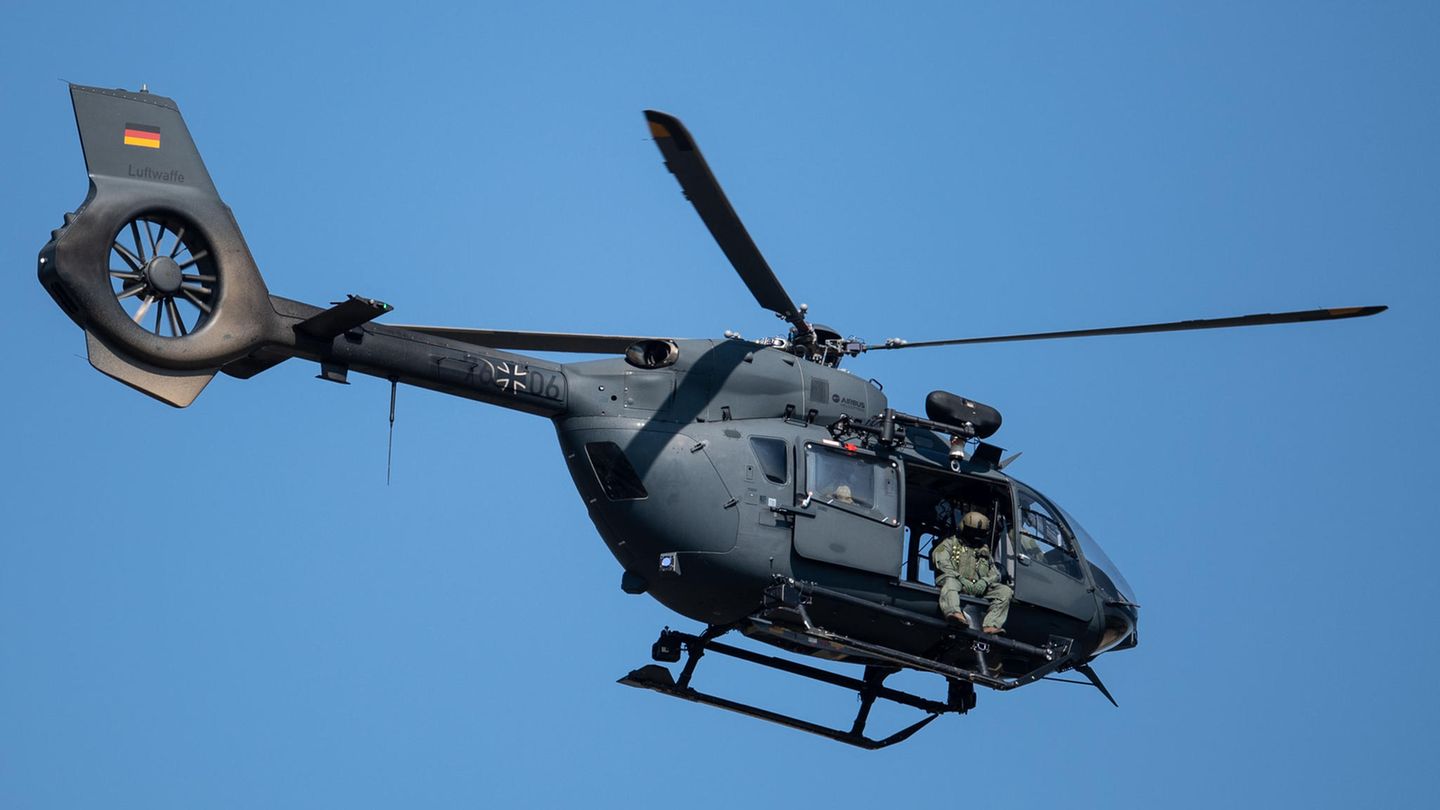Baltic Sea
Russian ship crew fires at Bundeswehr helicopters with signal ammunition
Copy the current link
A German helicopter is in action over the Baltic Sea when an incident occurs with a ship flying the Russian flag. The background is still unclear.
An incident occurred between a Bundeswehr helicopter and a Russian ship in the Baltic Sea. The German Press Agency in Brussels learned that the crew of the Russian ship fired with signal ammunition. Military circles said that a frigate’s helicopter was on a reconnaissance mission.
Foreign Minister Annalena Baerbock (Greens) had previously briefly mentioned the incident on the sidelines of a NATO meeting in Brussels. However, she did not give any details. According to dpa information, it happened last week. The tanker is said to have been traveling in the company of a Russian warship.
The use of signal ammunition is actually only common in emergency situations. Baerbock had pointed out that there are always ships in the Baltic Sea that are involved in evading sanctions due to the Russian war of aggression against Ukraine.
German frigate and helicopter without NATO order
There was initially no concrete evidence that the tanker involved in the incident was also used to evade sanctions. NATO circles said that the German frigate with the helicopter on board was not traveling on behalf of the military alliance.
From the Cold War to today: the history of NATO in pictures

April 4, 1949
Ten Western European countries, the USA and Canada founded NATO in Washington to counter the threat from the Soviet Union. They undertake to support each other in the event of an attack (“alliance case”). The alliance will gradually expand in the following years. In the photo: the representatives of the participating countries during the signing ceremony on April 4, 1949 in Washington DC
© EPS / AFP / Picture Alliance
Back
Further
A spokesman for the German Ministry of Defense did not want to comment on the specific case. Violations of the rules at sea or in the air happen from time to time. “And then it’s about the navy or the air force reacting prudently and having a de-escalating effect,” he said in response to a question at the Berlin government press conference.
Baerbock announces more protection for pipelines and cables in the Baltic Sea
At the NATO meeting in Brussels, Federal Foreign Minister Baerbock announced, among other things, that monitoring of pipelines and data cables in the Baltic Sea should be increased. Specifically, she mentioned the protection of critical infrastructure through patrols. The reason is the increase in hybrid attacks coming from Russia and its supporters.
As an example, Baerbock mentioned the destruction of cables, the jamming of the global positioning system GPS and the incident with the German Bundeswehr helicopter and the tanker.
Most recently, damage to two fiber optic cables in the Baltic Sea occurred within a short period of time in November. This involved a cable that runs between Sweden and Lithuania and one between Finland and Germany. The cause of this is still unclear in both cases. Swedish authorities are investigating possible sabotage. The investigators’ focus is on a Chinese ship called “Yi Peng 3”, which is said to have passed the affected areas of the cables at the time in question. Previously, a gas pipeline between Finland and Estonia was severely damaged last year.
Hybrid attacks on European states
After the damage to communication cables in the Baltic Sea, Poland’s Prime Minister Donald Tusk recently proposed joint surveillance of the sea by the navies of the western states.
In addition to Russia, China, North Korea and Iran in particular are accused of wanting to weaken states in Europe with so-called hybrid attacks. This umbrella term encompasses actions that state or non-state actors use to harm other countries without waging open war. As a rule, they are difficult or impossible to assign to a specific author.
Note: This post has been updated several times.
DPA
cl
Source: Stern
I have been working in the news industry for over 6 years, first as a reporter and now as an editor. I have covered politics extensively, and my work has appeared in major newspapers and online news outlets around the world. In addition to my writing, I also contribute regularly to 24 Hours World.




